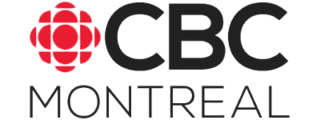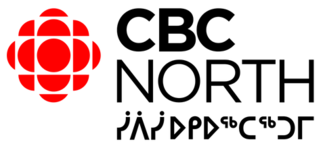Related Research Articles

The Global Television Network is a Canadian English-language terrestrial television network. It is currently Canada's second most-watched private terrestrial television network after CTV, and has fifteen owned-and-operated stations throughout the country. Global is owned by Corus Entertainment — the media holdings of JR Shaw and other members of his family.

CBC Television has aired National Hockey League (NHL) broadcasts under the Hockey Night in Canada brand that is primarily associated with its Saturday night NHL broadcasts throughout its history in various platforms.

René Lévesque was a Québécois politician and journalist who served as the 23rd premier of Quebec from 1976 to 1985. He was the first Québécois political leader since Confederation to attempt, through a referendum, to negotiate the political independence of Quebec. Starting his career as a reporter, and radio and television host, he later became known for his eminent role in Quebec's nationalization of hydro, and as an ardent defender of Quebec sovereignty. He was the founder of the Parti Québécois, and before that, a Liberal minister in the Lesage government from 1960 to 1966.
Shaw Direct is a direct broadcast satellite television distributor in Canada and a subsidiary of the telecommunications company Shaw Communications. As of 2010, Shaw Direct had over 900,000 subscribers. It broadcasts on Ku band from two communications satellites: Anik G1 at 107.3°W, and Anik F2 at 111.1°W. Anik F1R, which had been in service for 15 years, reached its end of life in the latter part of 2020, when the services on this satellite were migrated between the remaining two. These satellites are owned by Telesat Canada and otherwise are used primarily to distribute programming to various Canadian cable TV companies. The company was formerly known as Star Choice until April 15, 2009.
Events from the year 1982 in Canada.
Television in Quebec is a part of the culture of Quebec, with over 99% of households owning a television in Quebec. Long a preferred medium of many of Quebec's actors, artists, and writers, television has been one of the important forces in Quebec society, including its substantial influence in a series of dramatic changes in the 1960s: the Quiet Revolution.

The Société de télédiffusion du Québec, branded as Télé-Québec, is a Canadian French-language public educational television network in the province of Quebec. It is a provincial Crown corporation owned by the Government of Quebec. The network's main studios and headquarters are located at the corner of de Lorimier Street and East René Lévesque Boulevard in Montreal.

CBMT-DT is a television station in Montreal, Quebec, Canada, broadcasting the English-language service of CBC Television. It is owned and operated by the Canadian Broadcasting Corporation alongside Ici Radio-Canada Télé flagship CBFT-DT. Both stations share studios at Maison Radio-Canada on René Lévesque Boulevard East in Downtown Montreal, while CBMT-DT's transmitter is located atop Mount Royal.

La Soirée du hockey was a Canadian ice hockey television show. It was the French language Radio-Canada equivalent of the English Canadian CBC show Hockey Night in Canada. The show used "The Hockey Theme" as its theme song, like its English language counterpart. The show ran from 1952 to 2004.

CKMI-DT is a television station in Montreal, Quebec, Canada, part of the Global Television Network. Owned and operated by network parent Corus Entertainment, the station maintains studios inside the Dominion Square Building in downtown Montreal. Its primary transmitter is located atop Mount Royal, with rebroadcasters in Quebec City and Sherbrooke.

Telesat, formerly Telesat Canada, is a Canadian satellite communications company founded on May 2, 1969. The company is headquartered in Ottawa.
The Chénier Cell, also known as the South Shore Gang, was a Montreal-based Front de libération du Québec (FLQ) terrorist cell responsible for a decade of bombing, armed robbery and kidnapping that led to the October Crisis.

Maison Radio-Canada, located in Montreal, Quebec, Canada, is the broadcast headquarters, studios and master control for all French-language radio and television services of the Canadian Broadcasting Corporation including its flagship station CBFT-DT. It is also the main studio for Montreal's local English-language CBC services and the headquarters of Radio Canada International, the CBC's digital international broadcasting service.

CJAD is a commercial radio station operating in Montreal, Quebec, Canada. The station has an English language news/talk radio format and identifies itself on-air as CJAD 800. Owned and operated by Bell Media, it has a daytime power of 50,000 watts but reduces power to 10,000 watts at night to avoid interfering with other stations on AM 800. The transmitter is located near Saint-Edouard, while studios and offices are located on Rene-Levesque Boulevard East in Downtown Montreal. CJAD can be heard across Canada on Bell Satellite TV channel 953.

The Anik satellites are a series of geostationary communications satellites launched for Telesat Canada for television, voice and data in Canada and other parts of the world, from 1972 through 2013. Some of the later satellites in the series remain operational in orbit, while others have been retired to a graveyard orbit. The naming of the satellite was determined by a national contest, and was won by Julie-Frances Czapla of Saint-Léonard, Québec. In Inuktitut, Anik means "little brother".

CBC North is the Canadian Broadcasting Corporation's radio and television service for the Northwest Territories, Nunavut, and Yukon of Northern Canada as well as Eeyou Istchee and Nunavik in the Nord-du-Québec region of Quebec.
Radio Humsafar is a radio network providing South Asian programming to over 2 million listeners in several major cities around the world. Radio Humsafar's programming is broadcast in the United States, Canada, India, Australia and over the internet worldwide. It was launched in Montreal in July 2000 and is currently heard on radio stations across Canada, India, Australia and the United States. The station broadcasts family oriented programming with a mix of news, music, current issues, comedy shows, kids programs and talk shows 24 hours a day, 7 days a week. The evening talk show hosted by Jasvir Sandhu is currently its most popular program.
This is a timeline of the history of the Canadian Broadcasting Corporation.
NHL on CTV is the name of a former television program that broadcast National Hockey League games on the CTV Television Network.
During the 1979–80 and 1980–81 seasons, four more Canadian teams, the Edmonton Oilers, Quebec Nordiques, Winnipeg Jets, and Calgary Flames, joined the NHL. The Oilers and Flames were featured frequently as the two teams were contenders the 1980s; in contrast, as the Nordiques were owned by Carling-O'Keefe, a rival to the show's sponsor Molson and whose English-speaking fanbase was very small, the Nords were rarely broadcast, and never from Quebec City during the regular-season.
References
- 1 2 "Deaths: Dr. Alan Miller Thomas". The Globe and Mail . 19 August 2009. Retrieved 5 September 2010.
- 1 2 The Canadian Press (6 February 1979). "Despite CBC goofs, people talked back". The Gazette . Montreal. Retrieved 5 September 2010.
- ↑ "People Talking Back". Canadian Communications Foundation. Retrieved 5 September 2010.
- ↑ The Canadian Press (10 February 1979). "Telesat says Anik wasn't on the blink". The Gazette . Montreal. p. 80. Retrieved 5 September 2010.
- ↑ "People Talking Back (ad)". 3 February 1979. p. TV Times 6. Retrieved 5 September 2010.